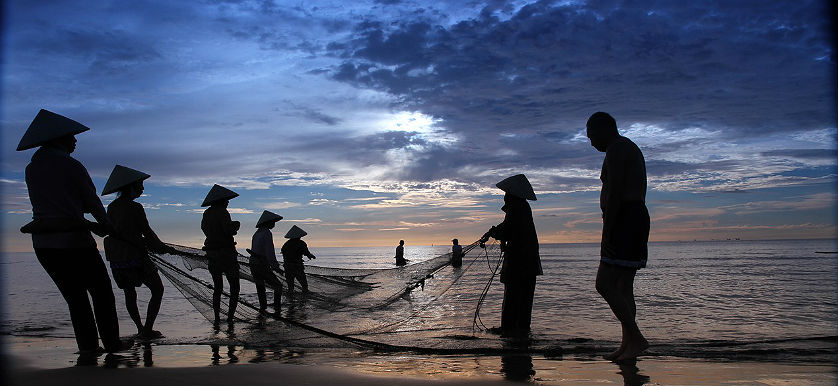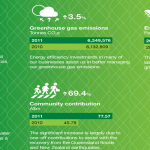Improving the sustainability of operations within the tourism industry

Sustainability of operations represents a hot topic in all industries, particularly in tourism, where due to an increasing interest of general tourists in topics related to sustainability and environmental awareness, the borders between ecotourism and mass tourism are fading. Subjects related to sustainability, including ecotourism, are gaining increasing attention from the broad public and tourists seem to be placing greater emphasis on environmental issues and nature when opting for a holiday destination.
Sustainability of tourism operations may be achieved through a series of compromises and trade-offs between four different groups of interests: tourists, local communities, touristic operators and the natural environment.
There are several approaches that companies within the tourism industry can follow in order to make their operations more sustainable, whether as part of a broader scope that aims at finding a balance between environmental, social and financial sustainability, or within a narrower, constant capital perspective.
Minimal environmental impact
It is difficult for hotels to operate in a completely environmentally friendly way, but there are several activities that businesses should undertake in order to minimize their environmental impact. They should rely on suppliers that also operate in an environmentally responsible manner. Facilities should be built in harmony with the natural surroundings, for example by applying bioclimatic design, using local indigenous materials and applying local know-how. Many policies, practices and pieces of equipment allow for the recycling, re-use and consumption reduction of resources.
Hotels that want to operate sustainably to attract environmentally sensitive tourists should implement practices such as using alternative energy sources, minimizing the consumption of water, reducing waste, activating efficient waste disposal and recycling systems.
The following KPIs can be used to monitor and improve a hotel’s environmental impact:
- # Energy consumption*
- % Energy saved due to conservation and efficiency improvements
- % Energy used from renewable sources
- # Water recycled and reused
- % Recycled materials used in construction
- % Locally sourced materials used in construction
- # Recycled waste
- # Wastewater
- # Non-contact water reuse
- # Recycled paper
- % Paper reduction
- # PET bottles recycled
- # Suppliers engaged in environmental initiatives
* Although still very important to measure, this KPI is becoming less relevant when measured on its own, as the availability of renewable energy sources is increasing. A business may have a higher # Energy consumption than another and still be more environmentally sustainable due to its high % Energy used from renewable sources.

Conservation tourism
An alternative sustainable approach of hotels might be that of directly or indirectly providing material or economic contribution to local conservation efforts. The distinguishing characteristic of conservation tourism is that the company’s revenue or activities contribute to environmental conservation organizations or activities, such as reforestation, rehabilitation projects, scientific monitoring and litter removal.
A well-known example of such initiative is the Al Maha Resort, located in the middle of the Dubai Desert Conservation Reserve, which, in order to offset the very high environmental impact of its operations (for example, daily # Water consumption between 1.2 million and 1.7 million liters), has implemented a conservation supporting program consisting in the regeneration of local flora and fauna. The program of flora regeneration consists in limiting camel grazing, trees and grass plantation (# Species of local flora re-introduced: 36, including species of plants, grass and trees) and boosting individual watering when needed.
The following KPIs help assess efforts related to conservation tourism:
- $ Environmental protection expenditure and investments
- # Habitat protected or restored
- % Land restoration
- # Programs supporting local environmental conservation efforts
- $ Investment in local environmental conservation efforts
- $ Investment in local flora regeneration
- # Species of local flora re-introduced
- $ Investment in local fauna protection
- # Land owned, leased or managed in biodiversity-rich habitats
- # Initiatives to promote greater environmental responsibility
- # Threatened species appearing in the IUCN red list

Empowerment of local communities
To improve the sustainability of their operations, companies within the tourism industry can also implement initiatives for the empowerment of local communities, which can be divided into four categories: economic, psychological, social and political.
Economic empowerment brings lasting economic benefits to local communities. This can be achieved by providing job opportunities to locals and by sourcing locally, both products and services, fostering the local economy and supporting related industries.
At the same time, it is important to note that it is usually difficult to find a balance between economic empowerment and cultural preservation: the trade-off is often unavoidable as, in the attempt to bring economic development, locals get in close touch with tourists, at the expenses of their local heritage. For instance, the designation of national parks benefits the environment through conservation, but harms the local population by denying them the access to resources and excluding them from traditional activities.
KPIs to monitor the empowerment of local communities:
- % Local residents in total workforce
- % Local suppliers
- % Spending on local suppliers
- % Food supplied from local sources
- # Corporate community involvement initiatives
- $ Investment in the community
- # Community satisfaction index
- # Community complaints
By taking into consideration these approaches and by monitoring the relevant KPIs, operators within the tourism industry can not only improve their environmental performance and increase the sustainability of their operations, but, at the same time, can attract more customers, who are increasingly becoming more environmentally conscious and oriented.
Improve your own tourism sustainability operations!
Whether you are already involved in the tourism industry or wish to become so, knowing how to maximize your operations is key to staying ahead of your competitors. From KPIs to KRIs, one has to know in advance which indicators will yield what kind of information, thus ensuring that the necessary variables are always properly understood and measured.
Coming to your aid, The KPI Institute has developed The Hospitality and Tourism KPI Dictionary, which can be used in the early stages of implementing a performance management framework, in the process of selecting and documenting KPIs, but also to improve an existing performance measurement system for an organizational entity in the tourism industry.
If you feel the need to garner even more information that is covered in our dictionary, head on over to smartkpis.kpiinstitute.org, our world-class KPI repository, and you will surely find the KPIs that suit your needs!
Image sources:

Tags: Hospitality and Tourism, sustainability KPIs





